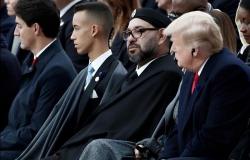For Ari Paparo, adtech expert, author of the Monopoly Report and CEO of Marketecture.tv, the Ministry of Justice succeeded in demonstrating Google's dominant position on the ad server market but not on ad exchanges or on advertising tools. 'purchase.
JDN. You attended the last day of pleadings this Monday, 11/25, in the trial between the American Department of Justice and Google for anticompetitive practices in the advertising market. What is your feeling?
Ari Paparo. I think the results of this trial will be mixed. As much as the demonstration of the accusation concerning the dependence of publishers on Google's advertising server (DFP or “GAM”) is very solid, certain other elements of the case are weaker, such as for example the accusation according to which Google distorts competition in advertising marketplaces. Ultimately, I think that if the US Department of Justice were to win this case, it would be more on the ad server side. This would affect the remedies that would be adopted to end this situation, but it is too early to know how.
Have the arguments of both parties been modified in this last day compared to the first phase of the pleadings?
The Justice Department's line remained largely unchanged, but it appeared to move away from the idea that the AdWords network is a buy-side monopoly. They didn't put much effort into proving it, and the judge pointed it out in his closing arguments. On the other hand, they were keen to demonstrate that the demand coming from AdWords is used above all to support the monopoly exercised by Google on the sell-side.
“The ministry seemed to want to move away from the idea that the AdWords network is a buy-side monopoly”
As for Google, it has focused almost entirely on legal arguments based on Supreme Court cases. He believes legal precedents prevent him from being forced to work with his competitors, as the Justice Department wants.
What is the strongest argument supported by evidence and likely to convince the judge of Google's guilt?
Prosecutors and witnesses called to the stand during the first phase of the trial argued forcefully that the media could not do without Google's ad server. This evidence came from three different major media outlets that are competitors (Gannet, News Corp et Daily Mail, ndlr). In several cases, witnesses gave specific indications of the dollar amounts they estimated to lose by switching servers, which added credibility to their arguments.
And regarding Google's intention to “kill the competition” as has been mentioned on numerous occasions, including with regard to header bidding? Has the prosecution succeeded in demonstrating these facts?
Yes and no. Most of the monopoly's strength is economic, since it involves linking Google's demand (AdWords) to Google's supply (AdX). There is ample evidence that Google sought to “kill competition” in the ad server market, the case on this point has been strong. Several of Google's competitors testified that they couldn't keep up. In the ad exchange and header bidding market, however, the data is more mixed. Even though AdX has more than 50% market share, one of the witnesses said it is “hyper-competitive.”
“The judge indicated that we would have his conclusions before the end of the year”
Concerning the header bidding market, numerous emails collected by the prosecution demonstrated Google's desire to put an end to header bidding. Evidence was presented on three strategies to kill it: Open Bidding, Poirot and Unified Pricing Rules. However, in my opinion, Google provided valid counterarguments to each of these strategies, explaining why it was not necessarily opposed to header bidding. In the end, a lot of evidence was provided to support the arguments of both sides.
Have we succeeded in demonstrating that Google manipulated the auctions in its favor to establish its domination?
The bid manipulation portion was ultimately specifically excluded from this case, probably for the sake of simplicity, but it is probably not necessary to strengthen the charge as a whole. For the record, the written file which preceded the pleadings indeed contains numerous proofs of auction manipulation, which is associated with the code names “Bernanke”, “Bell” and “Dynamic Revenue Share”. However, the Ministry of Justice decided not to bring these allegations to court and to concentrate on a simpler case, more focused on the subordination links between supply and demand and on the imposition of rules of unified pricing.
When will we know the decision in this case?
The judge indicated that we would have his findings before the end of the year.






